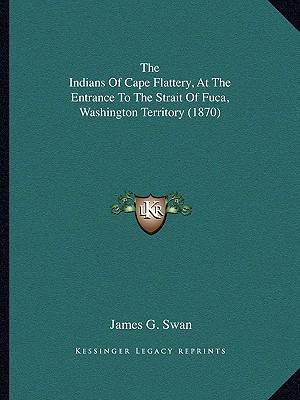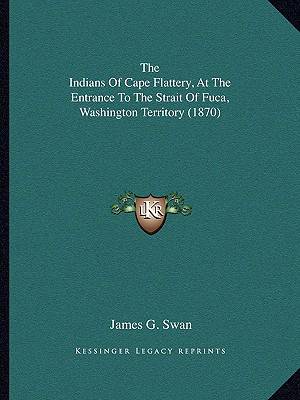
- Retrait gratuit dans votre magasin Club
- 7.000.000 titres dans notre catalogue
- Payer en toute sécurité
- Toujours un magasin près de chez vous
- Retrait gratuit dans votre magasin Club
- 7.000.000 titres dans notre catalogue
- Payer en toute sécurité
- Toujours un magasin près de chez vous
The Indians Of Cape Flattery, At The Entrance To The Strait Of Fuca, Washington Territory (1870)
James G Swan
Livre broché | Anglais
29,95 €
+ 59 points
Description
The book ""The Indians of Cape Flattery, at the Entrance to the Strait of Fuca, Washington Territory"" is written by James G. Swan and was first published in 1870. The book provides a detailed account of the indigenous people of Cape Flattery, a region located at the entrance to the Strait of Fuca in Washington Territory. The author, who was a historian and ethnographer, spent several years living among the local tribes and studying their customs, traditions, and way of life. The book is a result of his observations and interactions with the Makah, Ozette, and other tribes living in the region. The book provides a comprehensive description of the daily life, social structure, religion, and culture of the indigenous people. It covers topics such as hunting, fishing, food gathering, clothing, housing, and transportation. The author also discusses the tribe's spiritual beliefs, including their creation myths, rituals, and ceremonies. In addition to the cultural and historical aspects, the book also provides a glimpse into the impact of European colonization on the indigenous people. The author describes the conflicts between the tribes and the European settlers, as well as the changes in their lifestyle and traditions due to the introduction of new technologies and practices. Overall, ""The Indians of Cape Flattery, at the Entrance to the Strait of Fuca, Washington Territory"" is a valuable resource for anyone interested in the history and culture of the indigenous people of the Pacific Northwest. It offers a unique perspective on the lives and traditions of these tribes, as well as the impact of colonialism on their societies.This scarce antiquarian book is a facsimile reprint of the old original and may contain some imperfections such as library marks and notations. Because we believe this work is culturally important, we have made it available as part of our commitment for protecting, preserving, and promoting the world's literature in affordable, high quality, modern editions, that are true to their original work.
Spécifications
Parties prenantes
- Auteur(s) :
- Editeur:
Contenu
- Nombre de pages :
- 118
- Langue:
- Anglais
Caractéristiques
- EAN:
- 9781163933060
- Date de parution :
- 10-09-10
- Format:
- Livre broché
- Format numérique:
- Trade paperback (VS)
- Dimensions :
- 210 mm x 279 mm
- Poids :
- 285 g







